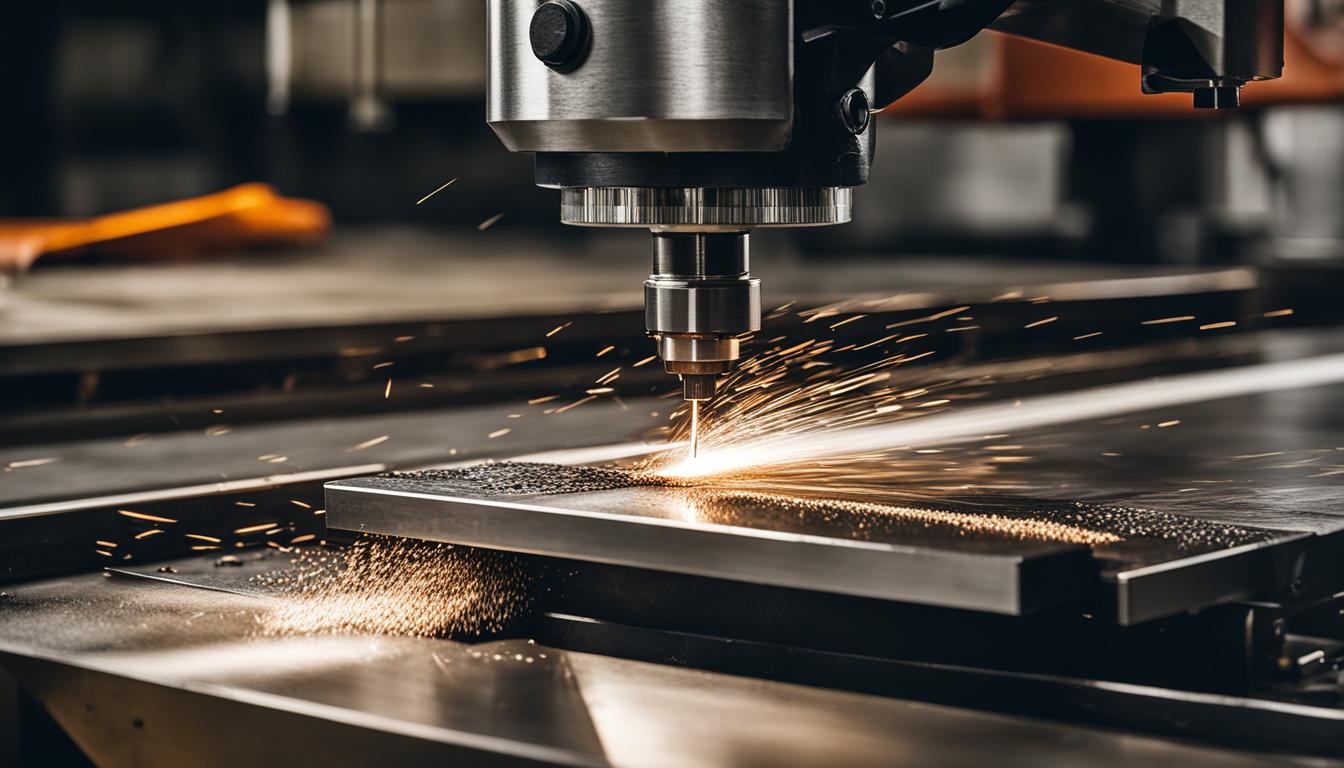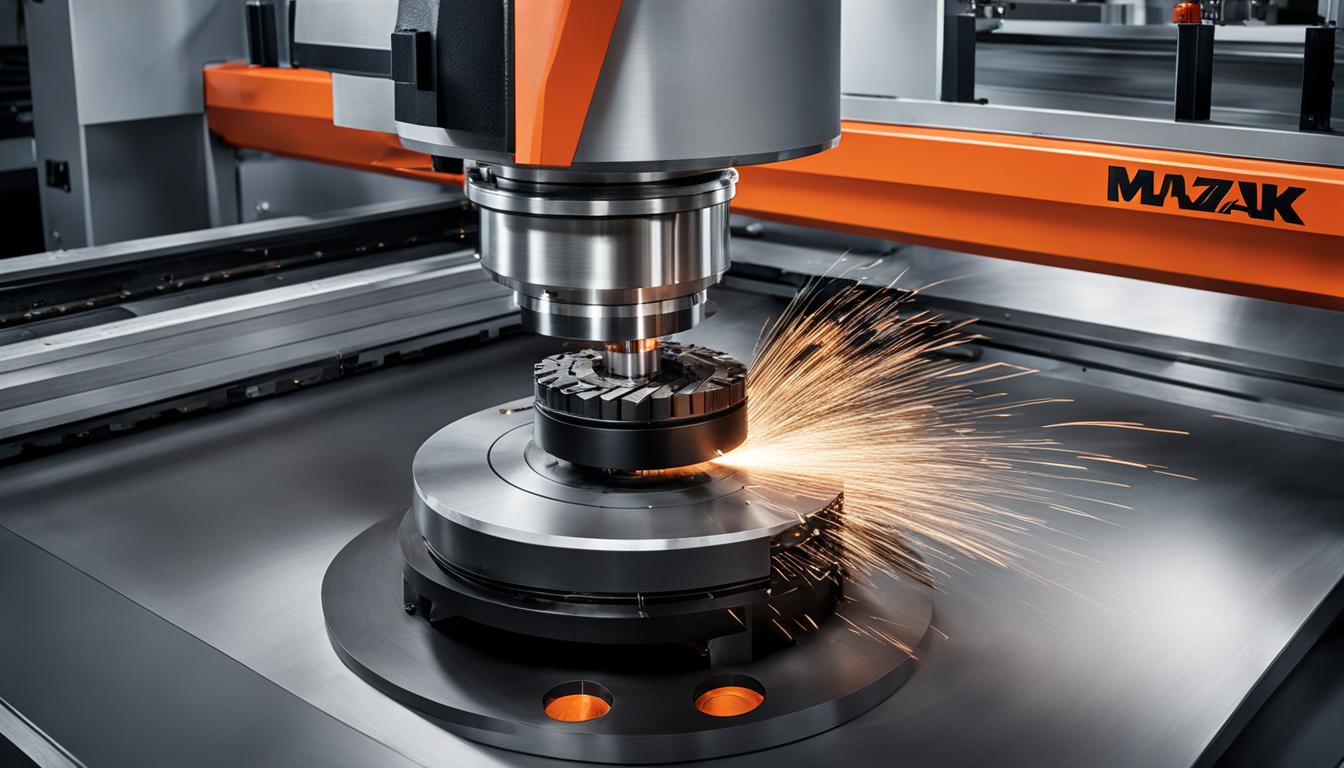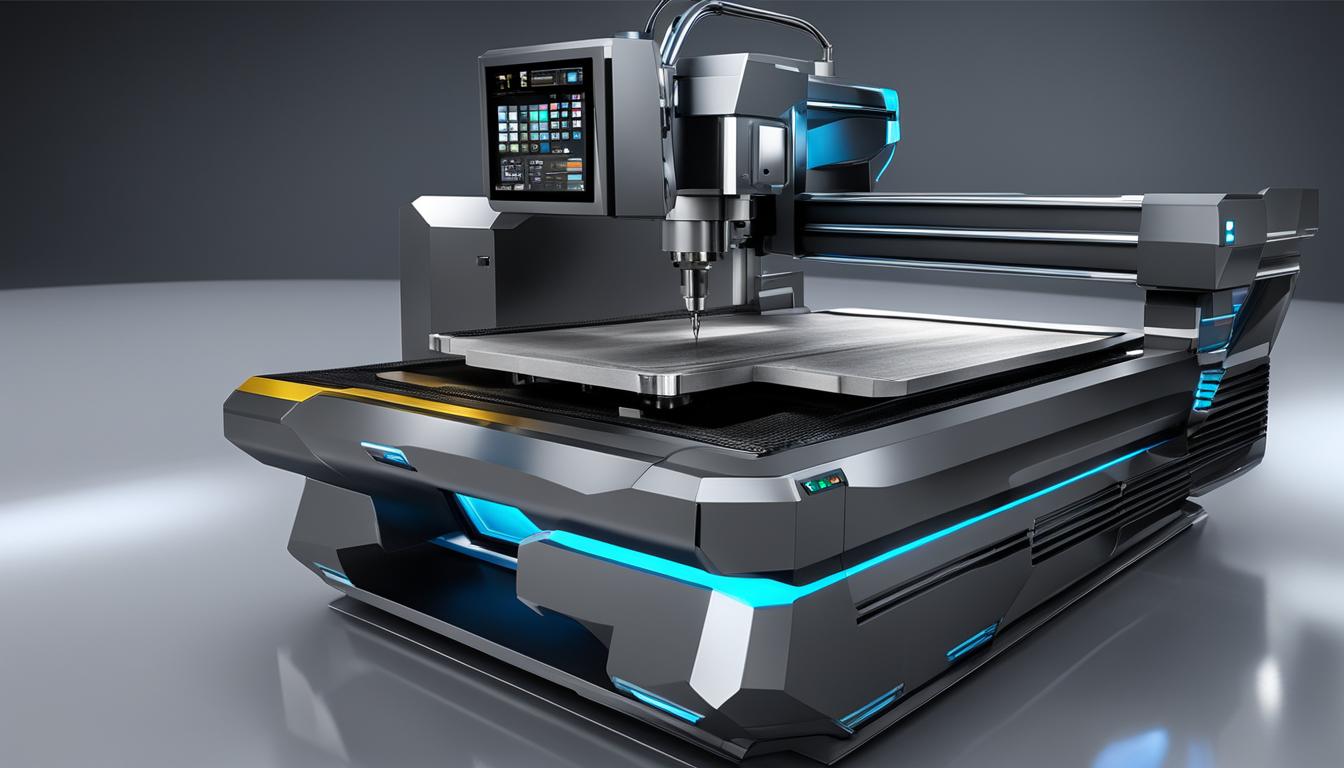The most precise CNC machine currently available is likely the KERN Micro HD, manufactured by KERN Microtechnik. This German-engineered machining system is renowned for its exceptional accuracy, achieving tolerances as tight as ±0.0003″ (±7.62 μm). The KERN Micro HD utilizes advanced features such as linear scales, thermally balanced construction, and a high-resolution measuring system to maintain consistent precision. Its rigidity and thermal stability contribute to its ability to produce high-tolerance parts with exceptional surface quality.
While other manufacturers like DATRON also offer highly precise machines, such as the M10 Pro with a 40nm resolution linear measuring system, KERN Microtechnik is widely recognized as a leader in micro-precision machining. The company’s focus on high-end machining and their extensive experience in producing precision parts since 1962 have solidified their reputation in the industry. The KERN Micro HD’s capabilities make it particularly suitable for industries requiring extreme precision, including medical technology, aerospace, and watchmaking.
- CNC machines are capable of achieving accuracies as low as 0.000001″, making them highly precise tools in machining.
- Popular choices for the most accurate CNC machines include Shizuoka and Mitsubishi models.
- The required precision may vary depending on the industry and specific applications.
- Woodworking industry requires specific considerations due to wood expansion.
- Precision engineering and advanced technology play a crucial role in achieving high accuracy in CNC machining.
The DATRON M10 Pro: A German-engineered precision machine
The DATRON M10 Pro is a highly regarded CNC machine known for its exceptional precision and German engineering. This machine is specifically designed for high-tolerance machining and offers a range of features that ensure accurate and reliable performance.
One of the key features of the DATRON M10 Pro is its use of linear scales in all axes. Linear scales provide enhanced accuracy by directly measuring the position of the tool. Combined with the machine’s thermally balanced construction, this ensures precise and consistent results even during long machining processes.
The DATRON M10 Pro also features a solid granite table, which adds to its rigidity and stability. This not only improves the machine’s overall precision but also helps to minimize vibrations and increase its lifespan. In addition, the machine is equipped with brushless servo motors, which offer high torque and precise control, further enhancing its performance.
With its robust construction, linear scales, and solid granite table, the DATRON M10 Pro is a precise industrial CNC milling machine that delivers exceptional results for a variety of applications. Its German engineering and high-quality components make it a reliable choice for achieving accurate and high-tolerance machining outcomes.
| Key Features | Benefits |
|---|---|
| Linear scales in all axes | Enhanced accuracy and precise tool positioning |
| Thermally balanced construction | Consistent precision during long machining processes |
| Solid granite table | Improved rigidity, stability, and vibration reduction |
| Brushless servo motors | High torque and precise control |
Understanding CNC Machines and Their Applications
CNC machines, short for computer numerical control machines, are automated devices used in precision manufacturing to carry out a wide range of operations. These machines play a vital role in industries such as automotive, aerospace, and electronics, where the production of precision components is crucial.
There are various types of CNC machines, each designed for specific applications. Milling machines are used for cutting and shaping materials, while lathes are primarily used for turning operations. CNC routers are ideal for carving complex designs, and CNC grinders are used for precision grinding tasks. Other types of CNC machines include plasma cutters, water jet cutters, honing machines, and electrostatic discharge machines.
CNC machines offer several advantages over traditional manual processes. The use of computer control ensures accuracy and repeatability, resulting in high-precision components. Automation reduces human error and increases efficiency, as CNC machines can operate continuously without the need for manual intervention. The ability to program these machines using CAD/CAM software allows for complex designs and rapid prototyping. CNC machines also enable the production of intricate geometries and tight tolerances, ensuring the highest quality of finished products.
The Applications of CNC Machines
CNC machines find applications in a wide range of industries. In the automotive industry, they are used for manufacturing engine components, gears, and suspension parts. In aerospace, CNC machines are utilized in the production of aircraft parts such as turbine blades, wing components, and landing gear. The electronics industry relies on CNC machines for the fabrication of printed circuit boards (PCBs) and the precision assembly of electronic components.
In addition to these industries, CNC machines are also used in medical device manufacturing, mold making, woodworking, and metal fabrication. These machines have revolutionized the manufacturing industry by providing efficient and accurate solutions for a wide range of applications.
| Type of CNC Machine | Applications |
|---|---|
| Milling Machines | Cutting, shaping, and drilling of materials |
| Lathes | Turning operations, drilling, tapping, reaming |
| CNC Routers | Carving complex designs in wood, plastic, and metal |
| CNC Grinders | Precision grinding of surfaces and cylindrical components |
| Plasma Cutters | High-speed cutting of metal using a plasma torch |
| Water Jet Cutters | Cutting of various materials using a high-pressure water jet |
| Honing Machines | Finishing and sizing of bores and cylindrical surfaces |
| Electrostatic Discharge Machines | Machining of complex shapes in conductive materials |
With their versatility, precision, and efficiency, CNC machines continue to transform the manufacturing industry, enabling the production of high-quality products with speed and accuracy.
Milling Machines: Versatile and Precise CNC Tools
Milling machines are an essential tool in the world of CNC machining. They have the capability to perform a wide range of operations, making them incredibly versatile. From simple drilling and boring to gear cutting and creating complex structures, milling machines are at the forefront of precision manufacturing.
One of the key advantages of milling machines is their ability to achieve high levels of milling accuracy. With advanced technology and innovative design, these machines can produce parts with exceptional precision. This is crucial in industries where accuracy is paramount, such as aerospace, automotive, and medical devices.
When it comes to precision milling, two brands that stand out are Shizuoka and Mitsubishi. Known for their commitment to quality and performance, these brands offer milling machines that deliver exceptional results. Whether you’re working on small-scale projects or tackling large and complex structures, Shizuoka and Mitsubishi machines provide the accuracy and reliability needed for successful machining operations.
Comparison of Shizuoka and Mitsubishi Milling Machines
| Brand | Model | Accuracy | Features |
|---|---|---|---|
| Shizuoka | SP-CH | 0.0001″ (one ten-thousandth of an inch) | High-speed spindle, rigid construction, precision linear guides |
| Mitsubishi | MVR-30 | 0.0002″ (two ten-thousandths of an inch) | Robust structure, high-precision ball screws, advanced control system |
As seen in the comparison table above, both Shizuoka and Mitsubishi milling machines offer impressive accuracy levels. The Shizuoka SP-CH model boasts an accuracy of 0.0001″, providing exceptional precision for the most demanding applications. On the other hand, the Mitsubishi MVR-30 offers an accuracy of 0.0002″, ensuring precise results even for complex milling operations.
Whether you choose a Shizuoka or Mitsubishi milling machine, you can be confident in their ability to deliver top-notch performance and reliable accuracy. These machines are a testament to the advancements in CNC technology, pushing the boundaries of what is possible in precision machining.

Precision CNC Lathes: Turning with Accuracy
Precision CNC lathes are advanced machines used for turning operations in the manufacturing industry. They are designed to produce cylindrical components with exceptional accuracy and precision. These lathes can perform various operations such as drilling, tapping, and reaming, making them versatile and ideal for a wide range of applications.
One of the key advantages of precision CNC lathes is their ability to achieve high levels of accuracy in turning operations. These machines are equipped with advanced technology that allows for precise control of cutting tools, ensuring that the desired dimensions and surface finishes are achieved with minimal tolerance. This level of accuracy is crucial for industries where precision is paramount, such as aerospace, automotive, and medical device manufacturing.
With precision CNC lathes, manufacturers can confidently produce components that meet strict quality standards. These machines offer reliable and repeatable performance, ensuring consistency in the production process. This not only reduces the risk of errors but also improves overall productivity and efficiency.
Precision CNC Lathes vs. Conventional Lathes
When comparing precision CNC lathes to conventional lathes, the key difference lies in the level of automation and control. CNC lathes are computer-controlled, allowing for precise programming and execution of turning operations. This eliminates the need for manual adjustments and ensures consistent results. In contrast, conventional lathes rely on manual operation, which can result in variations in accuracy and productivity.
| Factors | Precision CNC Lathes | Conventional Lathes |
|---|---|---|
| Accuracy | High | Varies |
| Automation | Full | Manual |
| Consistency | Excellent | Variable |
| Productivity | High | Dependent on operator |
Overall, precision CNC lathes offer superior accuracy, automation, and consistency compared to conventional lathes. These advanced machines are essential for industries that require precise and reliable turning operations, providing manufacturers with the capability to meet the highest quality standards.
The Advantages of CNC Routers in Precision Carving
CNC routers are powerful machines used for router machining, making them a popular choice for carving intricate designs in various materials such as wood, plastic, and metal. These machines feature a spinning bit that precisely removes unwanted parts from the workpiece, creating precise and detailed carvings. CNC routers are highly versatile and can be used in a range of applications, from artistic engraving to industrial manufacturing.
One of the key advantages of CNC routers is their ability to carve complex designs with exceptional accuracy. The precise movements controlled by computer software result in consistent and high-quality carvings. Additionally, CNC routers offer excellent repeatability, allowing for the replication of designs with precise dimensions.
CNC routers can be further enhanced with additional capabilities such as water jet cutters, plasma cutters, and electric discharge machines. These add-ons expand the machine’s versatility, enabling the cutting and shaping of various materials with different techniques. For example, water jet cutters use a high-pressure stream of water mixed with abrasive materials to cut through thick materials, while electric discharge machines use electrical discharges to erode the workpiece for precise shaping.
In summary, CNC routers are essential tools for precision carving, offering the advantages of accuracy, versatility, and the ability to work with different materials. Whether used in artistic projects or industrial manufacturing, these machines provide the precision and reliability needed to create intricate and visually stunning designs.
Table: Comparing the Capabilities of CNC Router Add-Ons
| Add-On Type | Main Function | Material Application |
|---|---|---|
| Water Jet Cutter | Cuts through thick materials using high-pressure water mixed with abrasive substances | Metal, stone, glass, composites |
| Plasma Cutter | Utilizes ionized gas to cut through conductive materials | Metal, steel, aluminum |
| Electric Discharge Machine | Erodes the workpiece using electrical discharges for precise shaping | Metal, plastic, ceramics |
Top CNC Machine Brands: Mazak, DMG MORI, Trumpf, MAG, Hardinge, Haas, Amada, Okuma
The world of precision machining is powered by top-notch CNC machine brands that have revolutionized high-tech manufacturing. These leading brands offer cutting-edge technology and exceptional quality, making them the go-to choice for industries that demand unparalleled precision and reliability.
Mazak
 Mazak is a renowned name in the CNC machining industry, known for its advanced technology and extensive range of machines. With a focus on innovation, Mazak offers a wide variety of precision machining solutions, including CNC lathes, milling machines, machining centers, and more. Their commitment to delivering exceptional performance and quality has made them a trusted partner for industries such as aerospace, automotive, and medical devices.
Mazak is a renowned name in the CNC machining industry, known for its advanced technology and extensive range of machines. With a focus on innovation, Mazak offers a wide variety of precision machining solutions, including CNC lathes, milling machines, machining centers, and more. Their commitment to delivering exceptional performance and quality has made them a trusted partner for industries such as aerospace, automotive, and medical devices.
DMG MORI
DMG MORI is a global leader in the manufacturing of CNC machines, combining German engineering excellence with Japanese precision. Their diverse product portfolio includes turning centers, milling machines, and advanced multi-axis machines. With a strong emphasis on technological advancements, DMG MORI continues to redefine precision machining capabilities.
Trumpf
Trumpf is a pioneering brand in high-tech manufacturing, specializing in laser cutting, punching, and bending machines. Their CNC solutions are optimized for sheet metal processing, offering exceptional precision and efficiency. Trumpf’s commitment to innovation and sustainability has solidified their position as a trusted partner for industries worldwide.
MAG
MAG is a leading manufacturer of high-performing CNC machines, delivering cutting-edge solutions for industries such as aerospace, automotive, and energy. With a focus on precision and productivity, MAG offers a wide range of solutions, including horizontal machining centers, vertical turning centers, and automated systems.
Hardinge
Hardinge is a renowned brand known for its precision CNC lathes and grinding machines. Their machines are designed to deliver exceptional accuracy and reliability, making them an ideal choice for industries that demand high-quality components. With a rich heritage spanning over a century, Hardinge continues to innovate and set the standard for precision machining.
Haas
Haas Automation is the largest machine tool builder in the United States, specializing in CNC vertical machining centers, horizontal machining centers, and turning centers. With a strong focus on customer satisfaction and unmatched value, Haas machines are widely used across industries, including aerospace, automotive, and medical devices.
Amada
Amada is a global leader in the manufacturing of CNC machines, offering a comprehensive range of solutions for sheet metal processing, laser cutting, and press brakes. Their commitment to precision, innovation, and customer satisfaction has positioned them as a trusted partner for high-tech manufacturing.
Okuma
Okuma is a Japanese brand renowned for its precision CNC machines, including machining centers, lathes, and grinders. With a focus on advanced technology and exceptional performance, Okuma machines are trusted by industries worldwide, including automotive, aerospace, and energy.
These top CNC machine brands represent the pinnacle of precision machining, combining cutting-edge technology with exceptional performance. Whether it’s for aerospace, automotive, medical devices, or any other industry that requires high-quality components, these brands deliver the reliability and precision needed to meet the most demanding manufacturing requirements.
CNC Router Machines: 3-Axis to 6-Axis Capability
CNC router machines are widely used in various industries, offering precision cutting and versatile capabilities. These machines come in different configurations, ranging from 3-axis to 6-axis capability, allowing for greater flexibility in manufacturing processes.
With a 3-axis CNC router, the machine can move in three directions: left and right, forward and backward, and up and down. This configuration enables basic cutting and shaping operations, making it suitable for many woodworking projects.
For more complex tasks, a 4-axis CNC router adds an additional rotational axis, allowing the machine to rotate the workpiece while cutting. This capability is especially useful for carving intricate designs or producing curved surfaces.
When even more precision is needed, a 5-axis CNC router provides two additional axes of movement: tilt and swivel. This enables the machine to cut at different angles and orientations, resulting in more intricate and detailed workpieces.
Finally, the most advanced CNC router configuration is the 6-axis machine. In addition to the previous axes, this setup includes a secondary spindle, which allows for simultaneous machining on multiple sides of the workpiece. This configuration is commonly used in the aerospace and automotive industries for complex parts and components.
Benefits of CNC Router Machines
- Precision Cutting: CNC routers offer high accuracy and precision, ensuring consistent and quality results.
- Versatility: With various axis configurations, CNC routers can handle a wide range of materials and applications, from wood and plastic to metal and composites.
- G-Code Programming: These machines utilize G-Code programming language, allowing for precise control over the cutting paths and operations.
Overall, CNC router machines are essential tools in modern manufacturing, offering advanced capabilities that enhance productivity and quality in a wide range of industries.
| CNC Router Configuration | Main Axes | Additional Axes | Applications |
|---|---|---|---|
| 3-axis | X, Y, Z | N/A | Basic cutting and shaping |
| 4-axis | X, Y, Z | Rotational | Carving intricate designs, curved surfaces |
| 5-axis | X, Y, Z | Tilt, Swivel | Intricate and detailed workpieces |
| 6-axis | X, Y, Z | Tilt, Swivel, Secondary Spindle | Complex parts and components |
The Advantages of CNC Machining
CNC machining offers a wide range of benefits in the manufacturing industry. One of the key advantages is automation. With CNC machines, tasks that were previously done manually can now be efficiently completed through automated processes. This not only saves time but also enhances accuracy and precision.
In addition to automation, CNC machining improves efficiency and speed. The use of computer-controlled machines enables fast and precise manufacturing, reducing production time significantly. This not only allows for faster turnaround but also increases productivity and profitability.
Furthermore, CNC machining ensures consistent quality. The ability to program and control machines using computer software eliminates human errors and deviations, resulting in products that meet strict quality standards. This consistency in quality enhances customer satisfaction and builds a strong reputation for the manufacturer.
Lastly, CNC machining is cost-effective. While the initial investment in CNC machines may be higher compared to traditional methods, the long-term benefits outweigh the costs. The reduction in manual labor, increased productivity, and minimized material waste contribute to long-term cost savings. Moreover, CNC machining allows for efficient use of materials, resulting in optimal utilization and reduced expenses.
